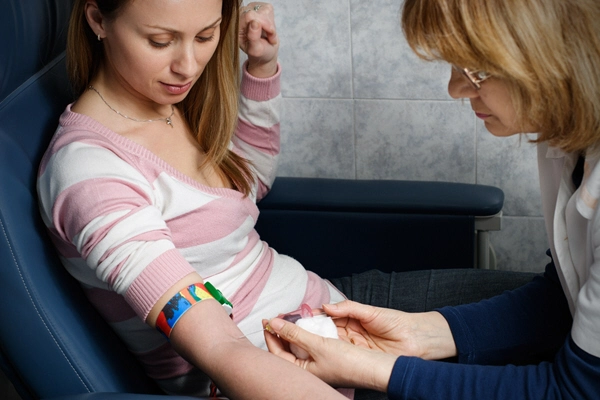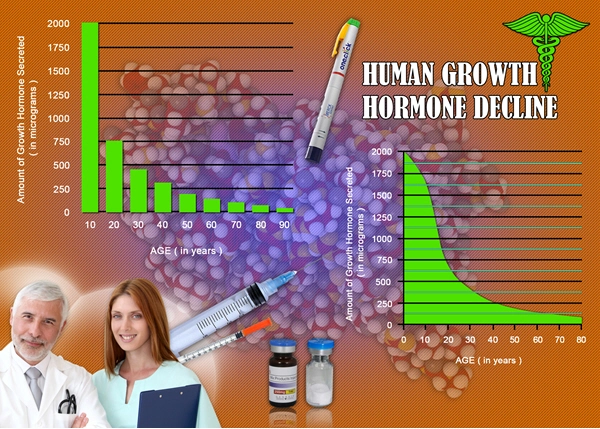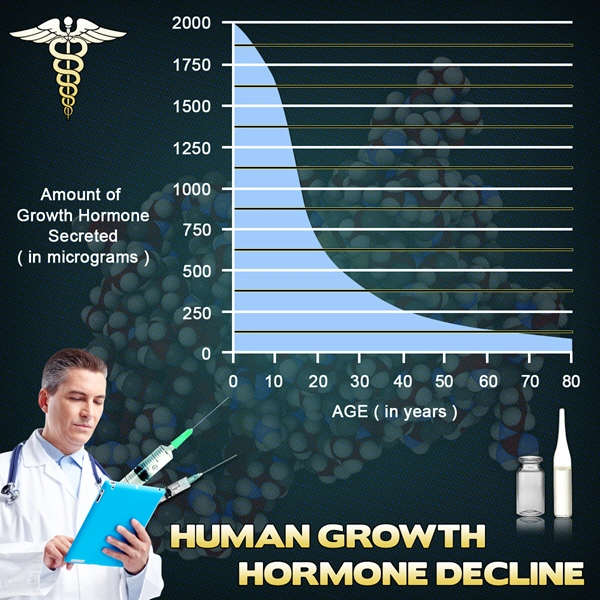Introduction to Low Libido
Low libido, or a diminished sexual desire, is increasingly becoming a concern among American males. This condition, often shrouded in silence due to societal stigma, is emerging as a slow-rising epidemic that warrants urgent attention and understanding. As medical professionals, it is crucial to delve into the multifaceted causes and implications of low libido to better assist those affected.
Understanding the Prevalence
Recent studies indicate that low libido affects a significant portion of the male population in the United States. It is estimated that up to 30% of men experience a decrease in sexual desire at some point in their lives. This statistic underscores the need for increased awareness and research into the condition, which can have profound effects on mental health, relationships, and overall quality of life.
Causes of Low Libido
The etiology of low libido is complex and can be attributed to a variety of factors. Physiological causes include hormonal imbalances, such as decreased testosterone levels, which are natural with aging but can also be influenced by lifestyle factors. Chronic illnesses like diabetes, heart disease, and obesity can also contribute to diminished sexual desire. Psychological factors, including stress, anxiety, depression, and relationship issues, play a significant role as well. Additionally, certain medications, such as those used to treat high blood pressure or depression, can have side effects that impact libido.
Impact on Mental Health and Relationships
The repercussions of low libido extend beyond the physical realm. Men experiencing a decline in sexual desire often report feelings of frustration, embarrassment, and a diminished sense of masculinity. These emotional responses can lead to increased stress and anxiety, further exacerbating the condition. In relationships, low libido can create tension and misunderstandings, potentially leading to dissatisfaction and even separation. It is essential for healthcare providers to address these psychological and relational aspects when treating patients with low libido.
Diagnostic Approaches
Diagnosing low libido involves a comprehensive evaluation of the patient's medical history, lifestyle, and psychological state. Blood tests to measure hormone levels, particularly testosterone, are often utilized. Additionally, discussions about sexual history and current relationship dynamics can provide valuable insights. It is important for physicians to approach these conversations with sensitivity and openness, ensuring that patients feel comfortable discussing such personal matters.
Treatment Options
Treatment for low libido is highly individualized and depends on the underlying cause. For hormonal imbalances, testosterone replacement therapy may be considered, though it comes with potential risks and side effects that must be carefully weighed. Lifestyle modifications, such as regular exercise, a balanced diet, and stress management techniques, can also be beneficial. Psychological counseling or couples therapy can address emotional and relational issues contributing to low libido. In some cases, adjusting medications or exploring alternative treatments may be necessary.
The Role of Prevention
Preventive measures can play a crucial role in mitigating the risk of low libido. Maintaining a healthy lifestyle, including regular physical activity and a nutritious diet, can help sustain optimal hormone levels and overall well-being. Open communication with partners about sexual desires and concerns can also foster a supportive environment that may prevent the development of low libido. Regular check-ups with healthcare providers can help monitor and manage any emerging health issues that could impact sexual desire.
Conclusion
Low libido in American males is a multifaceted issue that requires a holistic approach to both treatment and prevention. By increasing awareness and understanding of the condition, healthcare professionals can better support those affected, helping them to lead fulfilling and healthy lives. As the medical community continues to research and address this slow-rising epidemic, it is imperative that we prioritize the well-being of our patients and strive to break the silence surrounding low libido.

- Revitalizing Passion: Effective Strategies for Combating Low Libido in Long-term Relationships [Last Updated On: February 21st, 2025] [Originally Added On: February 21st, 2025]
- Revolutionizing the Landscape of Sexual Health: Addressing Low Libido through Medical Science [Last Updated On: March 2nd, 2025] [Originally Added On: March 2nd, 2025]
- Comprehensive Guide to Enhancing Male Libido: Understanding Causes and Exploring Treatment Options [Last Updated On: March 3rd, 2025] [Originally Added On: March 3rd, 2025]
- Understanding Low Libido in Men: Causes, Impact, and Treatments [Last Updated On: March 4th, 2025] [Originally Added On: March 4th, 2025]
- Exploring Physical Causes and Treatments for Low Libido in American Males [Last Updated On: March 4th, 2025] [Originally Added On: March 4th, 2025]
- Exploring Hormonal Influences on Male Libido and Sexual Health [Last Updated On: March 5th, 2025] [Originally Added On: March 5th, 2025]
- Comprehensive Guide to Understanding and Managing Low Libido in Men [Last Updated On: March 6th, 2025] [Originally Added On: March 6th, 2025]
- Unraveling the Link Between Anxiety and Diminished Sexual Desire in American Males [Last Updated On: March 6th, 2025] [Originally Added On: March 6th, 2025]
- Understanding and Managing Post-Menopausal Libido Decline: A Comprehensive Guide for Women [Last Updated On: March 7th, 2025] [Originally Added On: March 7th, 2025]
- Understanding and Managing Low Libido in Men: Causes, Impacts, and Strategies for Improvement [Last Updated On: March 8th, 2025] [Originally Added On: March 8th, 2025]
- The Interplay Between Mental Health and Libido: Understanding and Addressing Low Sexual Desire [Last Updated On: March 9th, 2025] [Originally Added On: March 9th, 2025]
- Unveiling the Link Between Chronic Diseases and Low Libido in American Males [Last Updated On: March 12th, 2025] [Originally Added On: March 12th, 2025]
- Exploring Effective Medical Therapies for Low Libido in Postpartum American Women [Last Updated On: March 13th, 2025] [Originally Added On: March 13th, 2025]
- Revolutionizing Intimacy: Cutting-Edge Medical Treatments for Low Libido in American Males [Last Updated On: March 15th, 2025] [Originally Added On: March 15th, 2025]
- Low Libido and Depression in American Males: Causes, Impacts, and Holistic Treatments [Last Updated On: March 18th, 2025] [Originally Added On: March 18th, 2025]
- Psychological Factors Impacting Low Libido in American Males: Insights and Solutions [Last Updated On: March 18th, 2025] [Originally Added On: March 18th, 2025]
- Medication-Induced Low Libido in American Males: Causes, Mechanisms, and Management Strategies [Last Updated On: March 18th, 2025] [Originally Added On: March 18th, 2025]
- Low Libido in American Men: Health Risks and Importance of Medical Advice [Last Updated On: March 19th, 2025] [Originally Added On: March 19th, 2025]
- Exploring Causes and Treatments for Low Libido in American Men [Last Updated On: March 20th, 2025] [Originally Added On: March 20th, 2025]
- Natural Supplements for Low Libido in American Males: Ginseng, Maca, L-Arginine [Last Updated On: March 21st, 2025] [Originally Added On: March 21st, 2025]
- Medication-Induced Low Libido: Causes, Mechanisms, and Management Strategies for American Men [Last Updated On: March 21st, 2025] [Originally Added On: March 21st, 2025]
- Understanding and Addressing Low Libido in American Males: Causes and Solutions [Last Updated On: March 21st, 2025] [Originally Added On: March 21st, 2025]
- Innovative Treatments for Low Libido in Men: Hormonal, Psychological, and Lifestyle Approaches [Last Updated On: March 22nd, 2025] [Originally Added On: March 22nd, 2025]
- Understanding and Boosting Low Libido in American Males: A Holistic Approach [Last Updated On: March 22nd, 2025] [Originally Added On: March 22nd, 2025]
- Chronic Illness Impact on Male Libido: Understanding and Managing Sexual Health [Last Updated On: March 22nd, 2025] [Originally Added On: March 22nd, 2025]
- Exploring Medical Causes and Treatments for Low Libido in American Males [Last Updated On: March 22nd, 2025] [Originally Added On: March 22nd, 2025]
- Low Libido in American Males During Partner's Lactation: Causes and Management Strategies [Last Updated On: March 22nd, 2025] [Originally Added On: March 22nd, 2025]
- Hyperthyroidism and Low Libido in American Males: Mechanisms, Diagnosis, and Treatment [Last Updated On: March 23rd, 2025] [Originally Added On: March 23rd, 2025]
- Diabetes and Low Libido in American Males: Mechanisms, Management, and Future Treatments [Last Updated On: March 23rd, 2025] [Originally Added On: March 23rd, 2025]
- Effective Treatments for Low Libido in American Males: Hormonal, Pharmacological, and Psychological Approaches [Last Updated On: March 23rd, 2025] [Originally Added On: March 23rd, 2025]
- Postpartum Libido Challenges for American Males: Causes and Strategies for Revival [Last Updated On: March 23rd, 2025] [Originally Added On: March 23rd, 2025]
- Understanding and Addressing Low Libido in American Men: Causes, Impacts, and Treatments [Last Updated On: March 23rd, 2025] [Originally Added On: March 23rd, 2025]
- Low Libido in Men: Causes, Medical Solutions, and Lifestyle Changes [Last Updated On: March 23rd, 2025] [Originally Added On: March 23rd, 2025]
- Navigating Low Libido in American Men: Medical, Psychological, and Holistic Approaches [Last Updated On: March 23rd, 2025] [Originally Added On: March 23rd, 2025]
- Understanding and Addressing Low Libido in Women Over 50: A Guide for Men [Last Updated On: March 23rd, 2025] [Originally Added On: March 23rd, 2025]
- Understanding and Treating Low Libido in American Men: Causes and Solutions [Last Updated On: March 24th, 2025] [Originally Added On: March 24th, 2025]
- Understanding and Treating Low Libido in American Men: Causes and Solutions [Last Updated On: March 24th, 2025] [Originally Added On: March 24th, 2025]
- Low Libido in Young American Males: Physiological, Psychological, and Lifestyle Factors [Last Updated On: March 24th, 2025] [Originally Added On: March 24th, 2025]
- Understanding Low Libido in American Males: Causes, Implications, and Treatment Options [Last Updated On: March 24th, 2025] [Originally Added On: March 24th, 2025]
- Sudden Low Libido in American Males: Causes, Diagnosis, and Treatment Strategies [Last Updated On: March 24th, 2025] [Originally Added On: March 24th, 2025]
- Managing Low Libido in Male Surgical Patients: Causes, Diagnosis, and Treatment Strategies [Last Updated On: March 24th, 2025] [Originally Added On: March 24th, 2025]
- Chronic Pain and Low Libido in American Males: Medical Links and Holistic Treatments [Last Updated On: March 25th, 2025] [Originally Added On: March 25th, 2025]
- Managing Age-Related Low Libido in American Men: Medical and Lifestyle Approaches [Last Updated On: March 26th, 2025] [Originally Added On: March 26th, 2025]
- Low Libido in American Males: Causes, Diagnosis, and Effective Treatment Strategies [Last Updated On: March 26th, 2025] [Originally Added On: March 26th, 2025]
- Low Libido in Men: Causes, Impacts, and Seeking Effective Treatments [Last Updated On: March 26th, 2025] [Originally Added On: March 26th, 2025]
- Understanding and Treating Low Libido in American Males: Causes and Solutions [Last Updated On: March 26th, 2025] [Originally Added On: March 26th, 2025]
- Effective Treatments for Low Libido in Men: Medical and Lifestyle Approaches [Last Updated On: March 26th, 2025] [Originally Added On: March 26th, 2025]
- Low Libido in American Males: Treatments, Risks, and Holistic Management Strategies [Last Updated On: March 26th, 2025] [Originally Added On: March 26th, 2025]
- Low Libido and Unhappiness in American Males: A Comprehensive Medical Analysis [Last Updated On: March 26th, 2025] [Originally Added On: March 26th, 2025]
- Managing Low Libido in American Males: Causes, Treatments, and Emerging Therapies [Last Updated On: March 27th, 2025] [Originally Added On: March 27th, 2025]
- Understanding and Treating Low Libido in American Men: A Comprehensive Guide [Last Updated On: March 27th, 2025] [Originally Added On: March 27th, 2025]
- Hypertension's Impact on Male Libido: Physiological and Psychological Connections [Last Updated On: March 27th, 2025] [Originally Added On: March 27th, 2025]
- Low Libido in American Women: A Rising Epidemic? [Last Updated On: March 27th, 2025] [Originally Added On: March 27th, 2025]
- Managing Low Libido in American Males Post-Chemotherapy: Medical and Lifestyle Approaches [Last Updated On: March 27th, 2025] [Originally Added On: March 27th, 2025]
- Strategies to Boost Low Libido in American Males: Medical and Lifestyle Approaches [Last Updated On: March 27th, 2025] [Originally Added On: March 27th, 2025]
- Alcohol's Impact on Libido: Hormonal, Neurological, and Psychological Effects in American Males [Last Updated On: March 27th, 2025] [Originally Added On: March 27th, 2025]
- Low Libido in American Male Athletes: Medical Insights and Management Strategies [Last Updated On: March 27th, 2025] [Originally Added On: March 27th, 2025]
- Post-Surgery Low Libido in Men: Causes, Impacts, and Recovery Strategies [Last Updated On: March 28th, 2025] [Originally Added On: March 28th, 2025]
- Low Libido in New Fathers: Causes, Impacts, and Solutions Post-Pregnancy [Last Updated On: March 28th, 2025] [Originally Added On: March 28th, 2025]
- Exploring Bidirectional Links Between Low Libido and Weight Gain in American Males [Last Updated On: March 28th, 2025] [Originally Added On: March 28th, 2025]
- Understanding and Treating Low Libido in American Men: A Holistic Approach [Last Updated On: March 28th, 2025] [Originally Added On: March 28th, 2025]
- Exploring Causes and Solutions for Low Libido in American Males [Last Updated On: March 28th, 2025] [Originally Added On: March 28th, 2025]
- Low Libido in American Males: Causes, Lifestyle Solutions, and Professional Help [Last Updated On: March 29th, 2025] [Originally Added On: March 29th, 2025]
- Revitalizing Male Libido: Hormonal, Lifestyle, and Psychological Strategies [Last Updated On: March 29th, 2025] [Originally Added On: March 29th, 2025]
- Chronic Low Libido in American Males: Medical Signs and Underlying Causes [Last Updated On: March 30th, 2025] [Originally Added On: March 30th, 2025]
- Strategies to Combat Low Libido in Healthy American Males: A Comprehensive Approach [Last Updated On: March 31st, 2025] [Originally Added On: March 31st, 2025]
- Understanding Low Libido in Women: Medical Insights for American Males [Last Updated On: April 1st, 2025] [Originally Added On: April 1st, 2025]
- Medical Causes and Solutions for Low Libido in American Men [Last Updated On: April 1st, 2025] [Originally Added On: April 1st, 2025]
- Antidepressants and Low Libido in Men: Medical Insights and Management Strategies [Last Updated On: April 1st, 2025] [Originally Added On: April 1st, 2025]
- Rising Low Libido in American Males: Causes, Impacts, and Restoration Strategies [Last Updated On: April 6th, 2025] [Originally Added On: April 6th, 2025]
- Medical Procedures Impacting Libido in American Men: Causes and Management Strategies [Last Updated On: April 6th, 2025] [Originally Added On: April 6th, 2025]
- Understanding Low Libido in American Men: Causes and Holistic Solutions [Last Updated On: April 7th, 2025] [Originally Added On: April 7th, 2025]
- Exploring Causes and Solutions for Low Libido in American Males [Last Updated On: April 8th, 2025] [Originally Added On: April 8th, 2025]
- Understanding Low Libido: Causes, Treatments, and Future Hope for American Men [Last Updated On: April 8th, 2025] [Originally Added On: April 8th, 2025]
- Medical Reasons for Persistent Low Libido in American Men: A Comprehensive Overview [Last Updated On: April 9th, 2025] [Originally Added On: April 9th, 2025]
- Medical Factors Affecting Low Libido in Women Under 40: Insights for American Males [Last Updated On: April 9th, 2025] [Originally Added On: April 9th, 2025]
- Managing Low Libido in Men: Causes, Diagnosis, and Multifaceted Treatment Approaches [Last Updated On: April 9th, 2025] [Originally Added On: April 9th, 2025]
- Understanding and Managing Low Libido in American Males: A Holistic Approach [Last Updated On: April 10th, 2025] [Originally Added On: April 10th, 2025]
- Effective Solutions for Low Libido in Men: Medical and Lifestyle Approaches [Last Updated On: April 10th, 2025] [Originally Added On: April 10th, 2025]
- Medical Insights into Low Libido: Causes, Diagnosis, and Treatments for American Men [Last Updated On: April 11th, 2025] [Originally Added On: April 11th, 2025]



List of USA state clinics - click a flag below for blood testing clinics.
Word Count: 611



















































